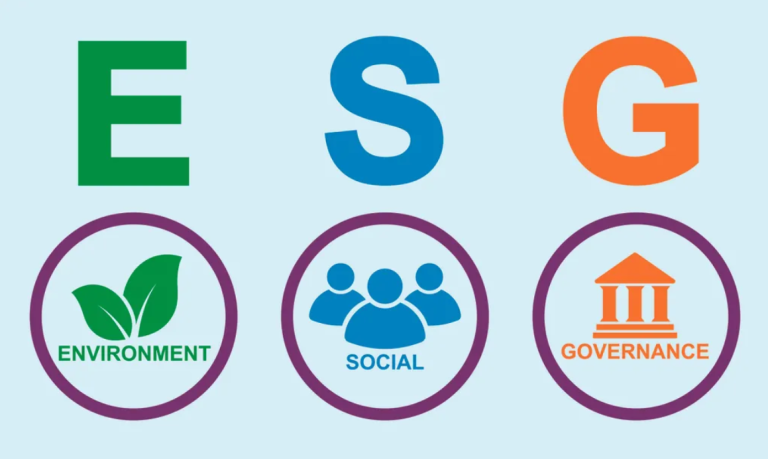ial, and Governance (ESG) investing has gained substantial attention in recent years as more investors seek to align their portfolios with ethical and sustainable values. However, not everyone shares the same ESG priorities. For those who have different investment goals or believe ESG criteria are not the sole driver of investment success, there are Exchange-Traded Funds (ETFs) designed for anti-ESG investors. In this article, we will explore the world of non-ESG ETFs, highlight some options available, and discuss the reasons behind their appeal to certain investors.
Understanding Non-ESG ETFs
Non-ESG or anti-ESG ETFs are investment funds that explicitly exclude ESG-focused companies or criteria from their portfolio selection. They prioritize traditional financial factors, such as profitability, dividend yields, and market capitalization, while largely ignoring environmental, social, or governance considerations. The appeal of non-ESG ETFs lies in their commitment to providing investors with options that deviate from the ESG trend.
Reasons for Choosing Non-ESG ETFs
Focus on Financial Metrics: Some investors believe that ESG criteria may not necessarily lead to better financial performance and that traditional financial metrics are more reliable indicators of investment success. They prefer ETFs that prioritize factors like revenue growth, earnings, and financial stability.
Diversification: Non-ESG ETFs can offer diversification across a broad range of companies and industries, potentially reducing investment risk. Some investors seek diversification without ESG screening restrictions.
Ethical Differences: Not all investors share the same ESG values. Some may have different ethical principles or prioritize different criteria, which they believe should guide their investment choices.
Long-Term Viability: Critics of ESG investing may question its long-term viability and argue that traditional financial analysis has proven its worth over time. They may feel that ESG trends are speculative and unproven.
Skeptical of Impact: Some investors may be skeptical of the actual impact ESG investing has on corporate behavior. They question whether ESG criteria genuinely lead to improved environmental or social practices.
Non-ESG ETF Options
For investors who prefer non-ESG ETFs, there are several options available across various asset classes and investment strategies. These ETFs cater to a range of investment preferences:
Traditional Market Index ETFs: These ETFs track standard market indices like the S&P 500, Russell 2000, or the Dow Jones Industrial Average, providing broad market exposure without ESG filters.
Sector-Specific ETFs: Investors can focus on specific sectors such as technology, healthcare, or financial services through sector-specific non-ESG ETFs.
Dividend ETFs: Dividend-focused ETFs prioritize companies with attractive dividend yields. These funds aim to generate income for investors and may be attractive to income-oriented investors.
Value ETFs: Value ETFs emphasize undervalued stocks based on metrics like price-to-earnings ratios and price-to-book ratios. These ETFs target companies that may be overlooked by ESG investors.
Small and Mid-Cap ETFs: Investors interested in small and mid-cap companies can find non-ESG options to access these market segments.
Fixed-Income ETFs: Non-ESG fixed-income ETFs offer exposure to bonds and other fixed-income securities without ESG screening.
Benefits and Considerations
Investors who choose non-ESG ETFs may find benefits in alignment with their investment philosophy and objectives. However, there are considerations to keep in mind:
Risk and Return: Non-ESG ETFs may offer different risk and return profiles than ESG-focused investments. Investors should carefully evaluate their risk tolerance and return expectations.
Ethical Alignment: Non-ESG investors should be aware that their investment choices may not align with ESG values. They should consider their ethical stance when investing.
Diversification: Diversification remains a key strategy for risk management. Investors should ensure that their non-ESG ETFs provide adequate diversification.
Transparency: Non-ESG ETFs may have different disclosure practices regarding the companies they invest in. Investors should understand how transparent these funds are in terms of their holdings.
Non-ESG ETFs are designed for investors who prioritize traditional financial metrics over ESG criteria, have different ethical principles, or are skeptical of the impact of ESG investing. These ETFs offer a range of options, allowing investors to align their investment choices with their preferences and objectives. However, investors should carefully consider their risk tolerance, return expectations, and ethical alignment when opting for non-ESG ETFs. The investment landscape is diverse, and there are choices available to suit a wide range of investment philosophies.


































